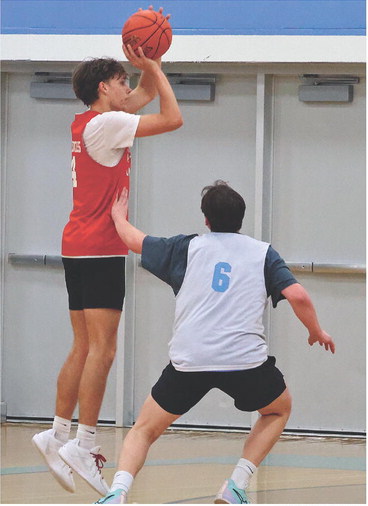Finding the right words sometimes isn’t easy, even for specialists


Matt’s Bleacher Shots
Hard to believe, but it was probably almost 20 years ago now that an office space partner and I were, for some reason, having a light-hearted conversation about job titles. Maybe others were involved too. I can’t remember.
Anyway, he decided that instead of reporters or journalists, we should be called “word organizing specialists.” We chuckled a bit and every once in a while, before he left the state for another job, we’d joke about our new titles. That’s all I really remember about the conversation was those three words. “Word organizing specialist.”
Fast forward to current times and I’m reminded of that conversation. Because in a profession where it’s expected that you know how to find the right words and put them in a readable context, it hardly seems possible to do that anymore in this year of 2020.
That’s the thing those of us who work in it have always said about print journalism. Once a story, a photograph, an editorial opinion piece, a column like this one or –– as much as we hate it, but we’re human and it happens –– a typo or mistake is published, it’s there forever for someone to read, whether it’s in the moment or years later in some sort of research project.
As a reporter in the mere sports realm, you appreciate that nearly every game story could be reviewed some years later for statistical data, record keeping or simply for reminiscing. In any case, you want it to be as accurate of a representation of the event as can be.
It’s not like 2020 is the first time reporters have tried to find the right words to describe a world health crisis, riots, looting, protests ranging from incredibly moving and peaceful to just plain ugly and horrific, spirited political arguments and presidential elections, brutality and natural disasters.
It might be the first time they’ve had to do it all in one year. And there’s still one-third of the year to go. Not that everything is going to all get better on Jan. 1, although it’s funny how many of us seem to think it will when we say that 2020 needs to just go away.
Obviously the Jacob Blake shooting in Kenosha a couple of weeks ago has added more layers to the complexity of 2020. From the initial shocking video, to another round of protest footage, to its reach into professional sports, it’s another item that sparks a lot of reactions and opinions. How will it best be described now, so people years later can understand what it meant at the time?
“Historic” and “unprecedented” might be accurate words to describe the current times. It feels like it some days. But, as stated earlier, the world has seen many of these 2020 headliners before, just maybe not all at one time.
“Frustrating” is a word that may fit for a lot of people. As one could have surmised months ago, the longer it’s taken to get the coronavirus under control the more people are either getting fed up with being told they can’t do what they want or how they want or are getting fed up with people who aren’t doing what they’re being recommended to do. Virus numbers and data –– just like statistics in sports –– are interpreted differently by everyone. Now it seems no one believes any reported number.
“Uncertain” is something many are feeling. So many questions, so few answers.
I could see “divisive” being an accurate word for America in 2020. I’m not young, but I’m not old either, so I don’t know how accurate it is to say that Americans’ opinions have never been so split or divided on every issue you could think of. Is it me or does it feel like you could say something as simple as “paper plate” and the wrong two people could come to blows arguing over it?
As a person with virtually zero interest in politics, who lacks for overly strong opinions on anything and who simply finds life a whole lot better when people don’t have to agree but they get along and at least try to listen and understand where the other side is coming from, it’s been a frustrating year.
The racial tension following the deaths of Blake, George Floyd and Breonna Taylor, of course, haven’t helped ease a lot of frustrations or brought enough people closer together.
“Sad” or “depressing” are words that I’m sure are being thought of a lot, but they’re probably not strong enough. Deaths by virus, deaths and losses by hurricanes and wildfires, deaths by street violence, deaths by police, deaths of icons have hit home for a lot of Americans. Maybe the death of Kobe Bryant this winter was the first bad omen. How ironic it is during this latest call for racial equality that a guy like John Thompson, the iconic men’s basketball coach at Georgetown who won a lot of games but also fought hard to make sure young black student-athletes were treated fairly, passes away. Same can be said for actor Chadwick Boseman, who, in the influential movie “42,” played the role of Jackie Robinson, an icon who was honored this past weekend throughout Major League Baseball.
But wouldn’t it be cool after all of the things that are hard to describe from a negative sense end up as events that wind up being hard to describe in a positive light down the road?
What if we use the word “monumental” to describe the quickly-discovered breakthrough medicine that gets us past COVID-19? Or to use words like “monumental” or “extraordinary” when the aftermath of COVID-19 leads us to an international blueprint to much more effectively deal with the next pandemic.
Maybe “extraordinary” will someday describe an American leader or leaders who emerge and find ways for more people to find common ground. I’m sure there are plenty of words people all across America were using after the Milwaukee Bucks led a surge of postponed professional sporting events last week with their playoff-game boycott. Admittedly, “mildly annoyed” might have been my first words simply because I was looking forward to listening to game five of the Bucks’ series with Orlando on the radio with my son on our way home from Madison that afternoon.
The athletes’ boycotts surely would’ve been more “dramatic” had they been staged with thousands of fans in the stands eager for games to start. Certainly would’ve been more dangerous and risky too with potentially counter-productive results.
Maybe the Bucks’ boycott will someday be seen as “ground-breaking” or the “turning point” to reach the ultimate goal of a better, more unified America. Maybe it will just be a minor footnote years down the road. However it’s done, the message the Bucks and their peers were sending is pertinent and needs to be heard loud and clear. It should have been heard in this country long before the year 2020.
Many word organizers have used the cliché of “turning a negative into a positive.” For many, that might be a simple and acceptable outcome for 2020, however unlikely that may seem today.
Matt Frey is the Sports Editor at The Star News.






